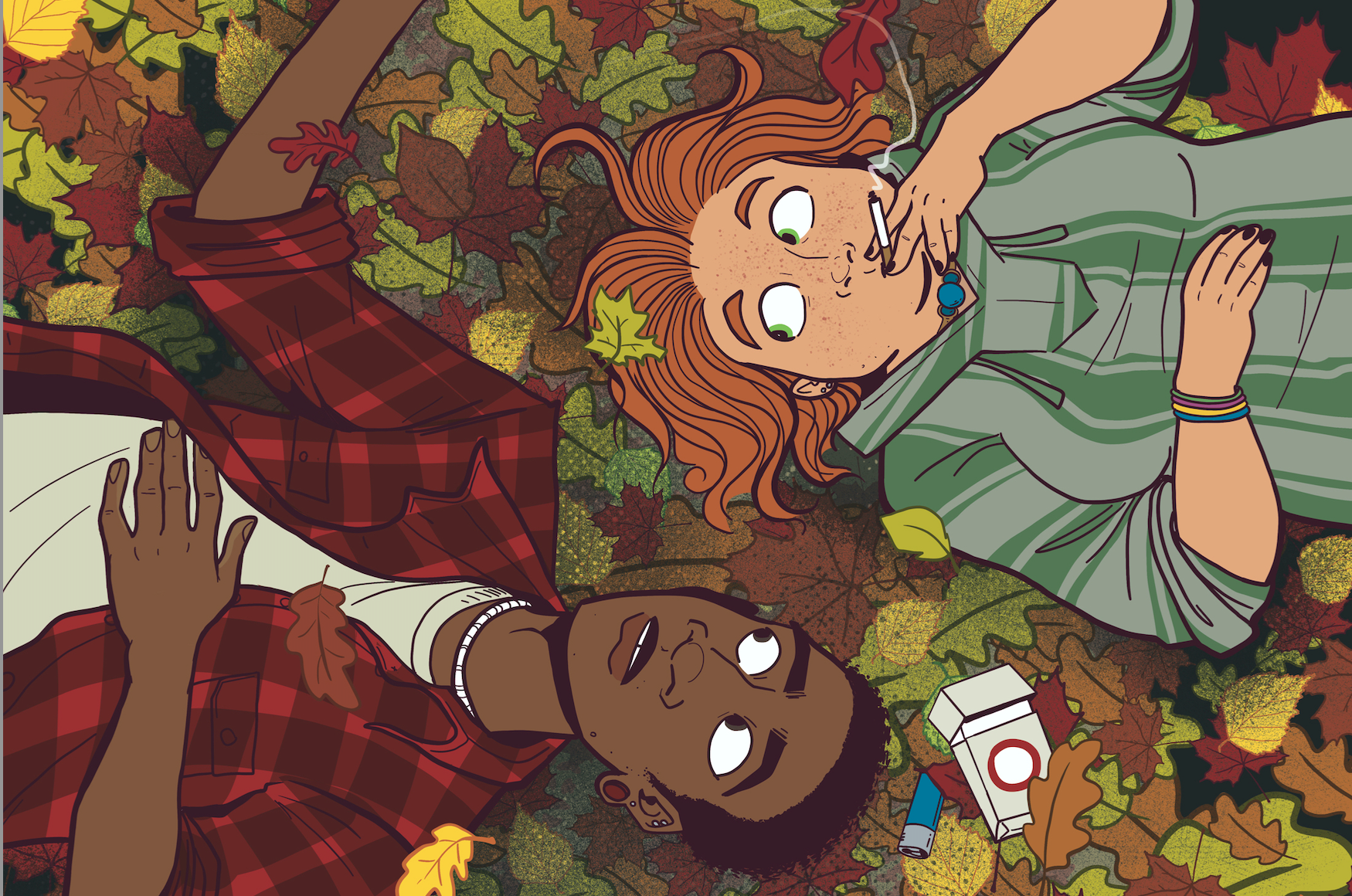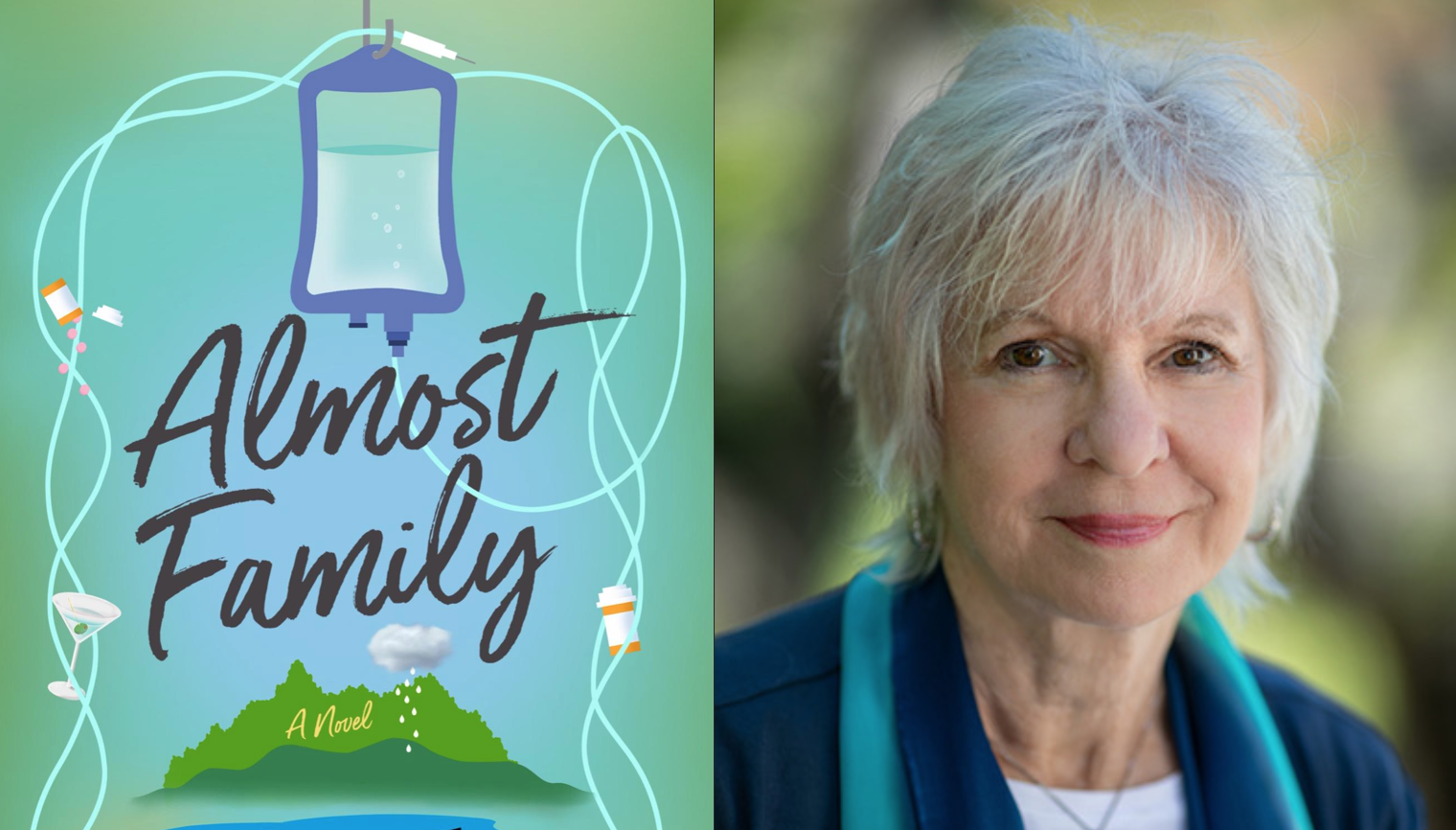
From award-winning author Andrea Wang, together with award-winning illustrator Jason Chin, comes a new children’s picture book that will delight both young and older minds visually, while telling an important and timely story about a child of immigrants discovering and connecting with her heritage. ‘Watercress’ is a tender story inspired by Wang’s childhood memories, which sees a young girl gathering watercress by the side of the road with her family in an experience that at first brings confusion and embarrassment, but eventually brings the girl closer to her family’s Chinese heritage.
Driving through Ohio in an old Pontiac, a young girl’s parents stop when they spot watercress growing in a ditch by the side of the road. Grabbing an old paper bag and some rusty scissors, the whole family wades into the muck to collect as much of the muddy watercress as they can. At first, she’s embarrassed. Why can’t her family get food from the grocery store? But when her mother shares a story of her family’s time in China, the girl learns to appreciate the fresh food they foraged. Together, they make a new memory of watercress.

In a press statement Andrea describes this book as both a love letter and an apology to her own parents. Unlike the girl in her story, her parents didn’t speak of the hardships they faced in China. So her experience of picking watercress only intensified feelings of not fitting in. She wonders if a better understanding of her family’s past could have led her to feel more compassion and empathy. Jason Chin, whose father was the child of Chinese immigrants, writes of learning of a similar experience in his illustrator’s note. The two hope ‘Watercress’ will be an encouragement to children who feel different and families with difficult pasts to tell their stories. As Andrea writes, “memories have the power to inform, to inspire, and to heal.”
Released on March 30 amidst a turbulent time in the United States during a spate of violent incidents toward the Asian-American community, where awareness and consciousness was being raised about America’s own history toward Asian immigrants, ‘Watercress’ offers a glimpse into one family’s story of heartbreak, loss, love, and generational pride.
We spoke with Andrea about her book, her own story, and what she hopes readers will take away most from ‘Watercress’, which is available to buy right now by clicking here.

How did the initial idea for ‘Watercress’ come about?
Essentially, it was a memory that wouldn’t let me go. It kind of haunted me, because I didn’t understand why I kept coming back to this experience of picking watercress with my family. I had to write about it in order to figure out what it meant to me both when I was a child and now as an adult.
The story is very autobiographical, drawing on your family’s background. Why did you feel this was an important story to share today?
Honestly, I initially wrote the story for myself, as a kind of catharsis. I never imagined that it would be published and strike such a chord with readers, nor that it would be released during a time of increased anti-AAPI racism. But I’m glad that it’s available now so that readers can see that AAPI and immigrants are just like everyone else. I think the book is important because it humanizes the immigrant and AAPI experience. I hope that it makes AAPI readers feel seen and understood, while also prompting conversations among all readers about who belongs. (We all do.)
What are some of the aspects of Chinese culture you wanted to include in this story?
Chinese people and other AAPI are often mocked by non-AAPI for their food, because they don’t know the history of hunger and famine in Asian countries. I wanted to show some of that history as well as how it affected Chinese culture and cuisine. I think practicality has become part of Chinese culture because of the problem of scarce resources – when you have very little, you don’t waste anything. When you come across a source of food or clothing or furniture, you seize the opportunity.
Chinese people have also long been described in the U.S. as cold and unfeeling. Nothing could be further from the truth. We are every bit as emotional, just perhaps not as demonstrative about it. And in Chinese culture, children are adored. I wanted to show this in WATERCRESS by the mom’s silence about her childhood in China. She wasn’t deliberately trying to keep secrets – rather, she felt she was protecting her children from seeing the hardships she had suffered. But when she saw that knowing would be more helpful for her daughter, she willingly revisited her childhood tragedy and made it a teachable moment.

The story is described as both an apology and a love letter to your parents. Can you expand on this?
A genuine apology comes from the heart, from understanding and accepting what we did wrong and feeling remorse for hurting the other person. So I think a true apology can also show our love for that person. I was definitely not the easiest kid to raise – I was a super-sensitive, quick-tempered, know-it-all. I harbored a lot of resentments and directed most of them at my parents. WATERCRESS is my way of apologizing to my parents for not seeing them for who they were and not understanding how their pasts had shaped them. On the flip side, now that I have more perspective on their lives, the story acknowledges their suffering and shows how grateful I am for everything they did for me – including making me pick watercress. In that way, the story is my love letter to them.
What do you hope the story will empower children to know when it comes to being different or feeling like they don’t fit in?
I hope that WATERCRESS shows all children, especially if they’re from different cultures or marginalized communities, that they do belong and they can take pride in their heritage. I also think it’s important to show kids that they are not alone – that everyone feels different or like they don’t fit in at some point in their lives.

Can you talk about working with illustrator Jason Chin?
Jason used both Western and Chinese paintbrushes and painting techniques in his watercolor illustrations for the book. Working with Jason was wonderful. Most picture book authors don’t get to interact with their illustrators, but our editor actually wanted us to meet and talk about the story. We were able to meet in person at a conference before the pandemic and I told Jason about my family’s history.
Later, we had a few phone conversations and I sent him photographs of my mom and myself as children. I tried hard to just answer his questions and not to impose on him my idea of what the illustrations should look like. He did an incredible amount of research on his own and it shows – the illustrations are filled with details that are accurate to the places and time periods in the story. And the range of emotions that he was able to convey through the characters’ expressions! I am just in awe of his ability and what he was able to achieve in the illustrations.
We are seeing an uptick in violence and hate crimes toward the Asian-American community right now, as well as an increase in advocacy and awareness. How do you hope ‘Watercress’ can be a part of the cultural shift toward empathy and embracing our diversity as a nation?
I hope that WATERCRESS shows the humanity of Asian Americans and their experiences as immigrants and the descendants of immigrants. By showing an Asian American family that is not “crazy rich” or part of the “model minority,” I hope the story fosters empathy for and helps create connections between Asian Americans. After the book was released, readers from all backgrounds have begun chiming in on social media with their own stories of foraging. I love that the book has become a conduit between Asian Americans and others to see that they have shared experiences and are not so different from one another.
As an author, why is storytelling a powerful force in our world today?
I truly believe that the right story at the right time can transform lives. Stories allow the reader to absorb a message in a way that is often more appealing than simply being told it by another person. We pride ourselves on our independence, which can make us resentful and resistant when we feel we are being told what to do or think. Stories, on the other hand, can open a door into another world and beckon us to see from another perspective, almost without us realizing it.

















